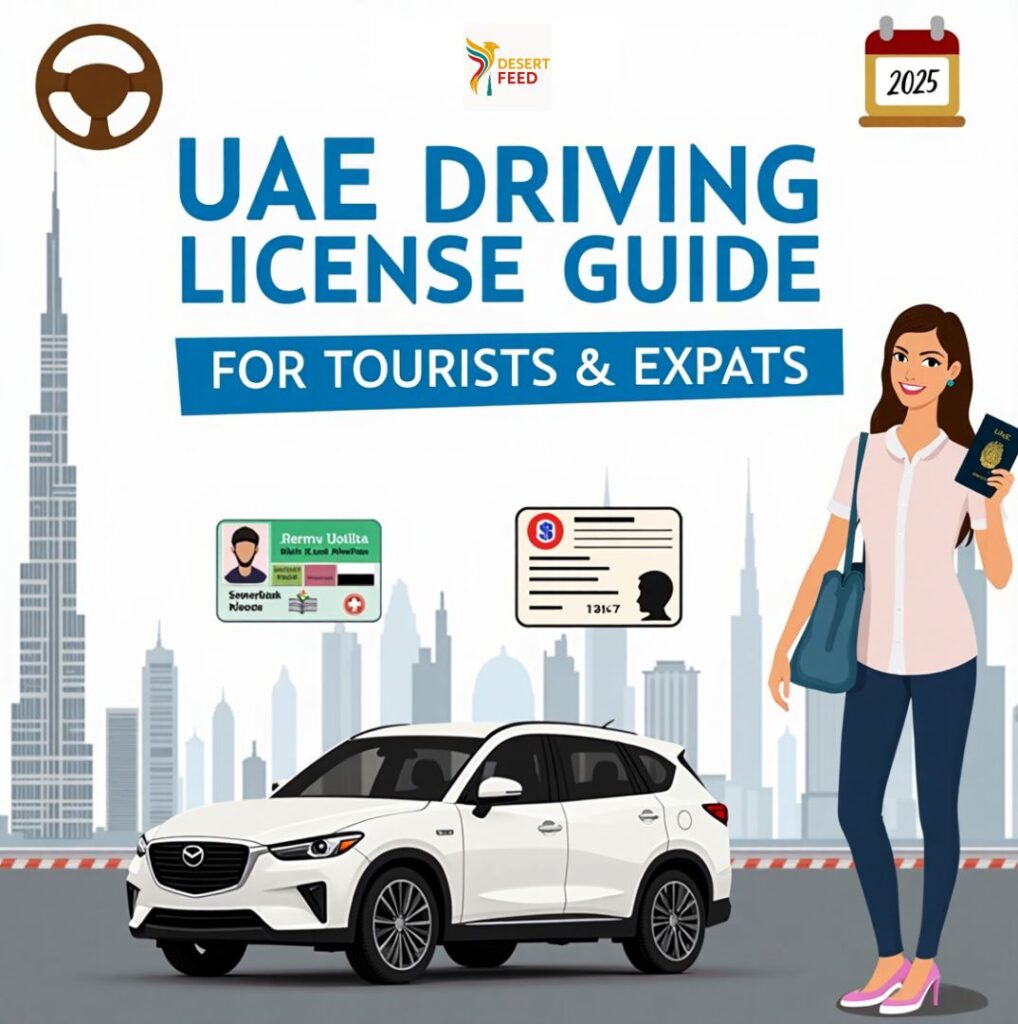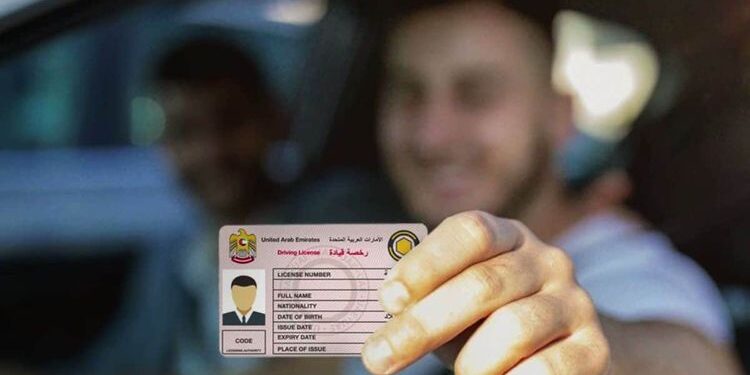The United Arab Emirates (UAE) is a global hub for tourism, business, and employment. From the futuristic skyline of Dubai to the cultural heritage of Abu Dhabi, millions of tourists and expatriates visit or reside in the UAE every year. Whether you’re staying for a short holiday or relocating for work, the ability to drive legally in the UAE can offer tremendous convenience and flexibility.
However, driving in the UAE requires a valid license—either a converted one or a new one, depending on your visa status and nationality. This detailed guide explains everything you need to know about driving in the UAE as a tourist or expat, including the documentation, procedures, laws, and helpful tips to ensure a smooth driving experience.
Why Driving in the UAE is Popular Among Tourists and Expats
-
Well-Maintained Roads: UAE boasts modern highways and road networks.
-
Reliable Navigation Systems: GPS and digital maps work seamlessly across the country.
-
Freedom to Explore: Driving gives you the liberty to explore offbeat destinations like Hatta, Fujairah, Al Ain, and Ras Al Khaimah.
-
Affordable Car Rentals: Plenty of car rental companies offer competitive rates and flexible terms.

1. Driving in the UAE as a Tourist
Can Tourists Drive in the UAE?
Yes, tourists can drive in the UAE using their home country’s driving license—but conditions apply. Depending on your nationality, you may be required to carry an International Driving Permit (IDP) along with your original license.
Eligible Countries for Driving Without IDP
Nationals of countries such as the USA, UK, Canada, Germany, France, Australia, and Gulf countries can drive using their original license without needing an IDP.
Requirements for Tourists to Drive
-
Original passport and valid visit visa
-
Original driving license from your country
-
International Driving Permit (if required)
-
Valid travel insurance (recommended)
-
Car rental agreement (if renting)
Car Rentals for Tourists
Car rentals are widely available at airports and in cities. Major providers include Hertz, Thrifty, Europcar, and Budget.
Documents needed to rent a car:
-
Passport
-
Valid visa
-
Driving license + IDP (if applicable)
-
Credit card
2. Driving in the UAE as an Expat
Who is Considered an Expat?
If you are staying in the UAE on a residence visa (for work, business, or family), you are considered an expatriate, and you cannot drive using a tourist license or IDP beyond a limited period.
3. Driving License Conversion for Expats
License Conversion Without a Driving Test
Expats from specific countries can exchange their foreign license for a UAE driving license without the need for a driving test.
Eligible Countries Include:
-
USA, UK, Germany, France, Australia, Canada
-
Belgium, Netherlands, Spain, Ireland
-
Japan, South Korea, South Africa, New Zealand
Required Documents:
-
Original driving license
-
Passport and residence visa copy
-
Emirates ID
-
Passport-sized photographs
-
Eye test report (from licensed optometrist or driving school)
-
No Objection Certificate (NOC) from employer (sometimes required)
Steps to Convert Foreign License:
-
Get an eye test at an approved center.
-
Visit the RTA (Dubai), TAMM (Abu Dhabi) or other emirate’s traffic authority.
-
Submit documents.
-
Pay the license issuance fee (approx. AED 600–800).
-
Receive your UAE driving license on the same day.
4. Getting a New UAE Driving License
If you’re from a non-exempt country or do not hold a valid foreign license, you must go through the full licensing process.
Eligibility:
-
Must be 18 years old or above
-
Hold a valid residence visa
-
Pass all theoretical and practical driving tests
Steps to Get a Driving License in UAE:
1. Register with a Driving School
Approved schools include:
-
Emirates Driving Institute (Dubai)
-
Galadari Driving School
-
Al Ahli Driving Center
-
Abu Dhabi Driving Company
2. Attend Theory Classes
Learn about:
-
Road signs
-
Traffic laws
-
Safe driving techniques
3. Pass the Theory Test
Usually conducted via a touch screen.
4. Practical Training
You’ll be assigned a qualified instructor and vehicle for training. This includes:
-
Internal assessment
-
Parking tests (parallel, garage, hill)
-
Highway training
5. Final Road Test
You will drive in live traffic conditions in front of an examiner.
6. Receive Your License
If successful, you’ll be issued a UAE driving license valid for 2 years.
5. UAE Driving Laws and Safety Regulations
Driving in the UAE is taken very seriously. Violating traffic laws can lead to heavy fines, black points, car impoundment, or even jail time.
Key UAE Driving Rules:
-
Drive on the right-hand side
-
Seatbelts mandatory for all passengers
-
Zero-tolerance for drinking and driving
-
Mobile phones can only be used hands-free
-
Use of indicators is compulsory
-
Speed limits are strictly enforced (speed cameras everywhere)
Speed Limits:
-
Urban roads: 60–80 km/h
-
Highways: 100–120 km/h (with 20 km/h buffer in most emirates)
-
School zones and residential areas: 40 km/h
Fines and Penalties (Examples):
| Offense | Fine (AED) | Black Points |
|---|---|---|
| Running red light | 1,000 | 12 |
| Not wearing seatbelt | 400 | 4 |
| Using phone while driving | 800 | 4 |
| Speeding | 600–3,000 | 4–23 |
6. Important Tips for Drivers in UAE
-
Always carry your documents (license, ID, registration, insurance)
-
Avoid aggressive driving or tailgating—can lead to legal issues
-
Check for Salik (Dubai Toll System) and ensure balance
-
Google Maps and Waze are reliable for directions
-
Petrol is cheap, but car maintenance is costly
-
Desert driving requires a 4×4 and extra safety gear
7. Driving License Renewal in UAE
Validity:
-
For expats: 2 years
-
For UAE/GCC citizens: 5 or 10 years
Renewal Requirements:
-
Eye test
-
Emirates ID
-
Valid visa
-
Old license
-
Fee payment (approx. AED 300)
You can renew online via the RTA website or app.
8. Can You Drive in Other GCC Countries with UAE License?
Yes, a UAE driving license is valid in most Gulf Cooperation Council (GCC) countries like Saudi Arabia, Qatar, Oman, Bahrain, and Kuwait—for tourists or temporary stays. For long-term residence in those countries, a local license may be required.
Conclusion
Whether you’re visiting the UAE for a holiday or moving for a new job, understanding the local driving laws and licensing process is essential for a safe and stress-free experience. Tourists can drive with their home country licenses (with or without an IDP), while expats need to either convert their license or pass the UAE driving tests.
Always follow the traffic rules, carry valid documents, and respect the road culture. With well-paved highways, stunning desert drives, and modern infrastructure, driving in the UAE can be a truly enjoyable experience.






